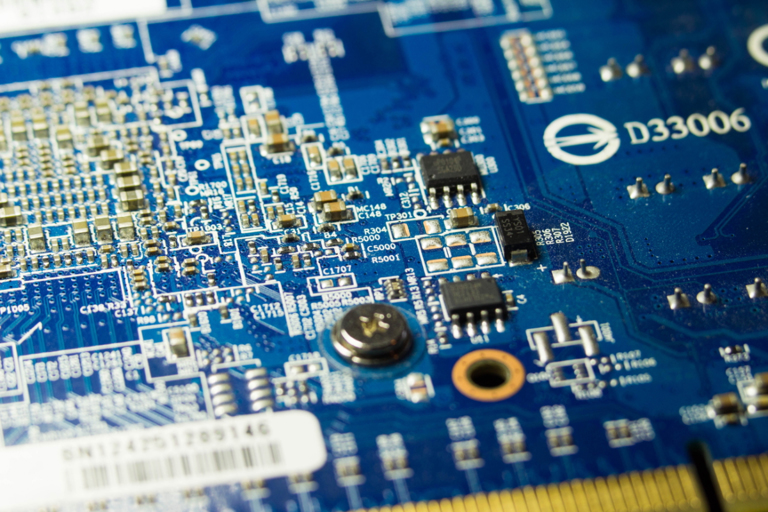iPhone's New Frontier: Apple Shifts Gears to India Amid China Trade Tensions
Manufacturing
2025-04-09 07:50:00Content

In a strategic move to navigate the challenging landscape of international trade, Apple is exploring significant expansion of its iPhone production capabilities in India. The tech giant is responding to escalating US tariffs by diversifying its manufacturing footprint, with a keen focus on reducing potential financial risks associated with exports to the United States.
As geopolitical tensions and trade complexities continue to reshape global supply chains, Apple's decision to boost manufacturing in India represents a proactive approach to maintaining competitive pricing and supply chain resilience. The company is leveraging India's growing technological infrastructure and skilled workforce to create a robust alternative to its traditional Chinese manufacturing base.
This strategic pivot not only helps Apple mitigate potential economic pressures but also aligns with the Indian government's "Make in India" initiative, which encourages domestic manufacturing and foreign investment. By increasing local production, Apple stands to benefit from potential tax incentives and reduced logistical complexities.
Industry analysts suggest that this expansion could potentially transform India into a critical hub for Apple's global manufacturing strategy, offering the company greater flexibility in an increasingly unpredictable international trade environment.
Apple's Strategic Pivot: Transforming iPhone Production in the Global Manufacturing Landscape
In an era of escalating trade tensions and economic recalibration, technology giants are increasingly seeking innovative strategies to navigate complex geopolitical challenges. The smartphone manufacturing ecosystem stands at a critical juncture, with companies like Apple exploring transformative approaches to maintain competitive advantage and supply chain resilience.Navigating Tariffs: A High-Stakes Manufacturing Metamorphosis
The Geopolitical Manufacturing Chess Game
Apple's strategic considerations represent more than a mere production shift; they symbolize a sophisticated response to intricate international trade dynamics. The United States' escalating tariff landscape has compelled multinational corporations to reimagine their global manufacturing footprints. India, with its burgeoning technological infrastructure and skilled workforce, emerges as a compelling alternative to traditional manufacturing hubs. The semiconductor and electronics manufacturing sectors are experiencing unprecedented transformation. Apple's potential expansion in India signals a profound understanding of geopolitical economic currents, demonstrating the company's ability to preemptively adapt to changing regulatory environments. By diversifying production capabilities, Apple mitigates potential financial risks associated with concentrated manufacturing dependencies.India's Technological Renaissance and Manufacturing Potential
India's technological ecosystem has undergone remarkable evolution over the past decade. The nation's robust engineering talent pool, combined with progressive government policies promoting domestic manufacturing, creates an attractive environment for global technology companies. Initiatives like "Make in India" have systematically dismantled bureaucratic barriers, offering unprecedented incentives for international manufacturers. The smartphone production landscape in India represents a complex interplay of technological innovation, economic policy, and strategic corporate decision-making. Apple's potential expansion transcends mere production relocation; it represents a strategic recalibration of global manufacturing paradigms. By investing in Indian manufacturing infrastructure, Apple not only diversifies its supply chain but also contributes to India's technological modernization.Economic and Technological Implications of Manufacturing Diversification
The ramifications of Apple's potential manufacturing expansion extend far beyond immediate production considerations. Such a move could catalyze significant technological knowledge transfer, stimulate local economic development, and reshape global supply chain architectures. Indian technological ecosystems would benefit from direct engagement with Apple's sophisticated manufacturing methodologies and quality control standards. Technological transfer represents a nuanced process involving complex knowledge exchange mechanisms. Apple's potential investments could accelerate India's technological capabilities, creating sophisticated manufacturing clusters that attract additional international investments. This symbiotic relationship promises mutual economic and technological benefits, transcending traditional outsourcing models.Navigating Technological and Regulatory Complexities
Expanding iPhone production in India necessitates navigating intricate regulatory landscapes and technological challenges. Apple must meticulously assess infrastructure capabilities, workforce skills, and potential supply chain disruptions. The company's legendary attention to manufacturing precision demands comprehensive strategic planning and rigorous implementation frameworks. Successful manufacturing diversification requires more than geographical relocation. It demands sophisticated technological integration, workforce training programs, and alignment with local regulatory environments. Apple's potential expansion represents a masterclass in strategic corporate adaptation, demonstrating how multinational technology companies can transform challenges into opportunities.Future of Global Manufacturing: A Paradigm Shift
Apple's strategic considerations illuminate broader transformations in global manufacturing architectures. Traditional manufacturing models are rapidly evolving, driven by geopolitical tensions, technological advancements, and economic recalibrations. Companies that can nimbly adapt to these dynamic environments will emerge as future industry leaders. The smartphone manufacturing sector stands at an unprecedented inflection point. Technological innovation, geopolitical strategies, and economic policies are converging to create new global manufacturing landscapes. Apple's potential expansion in India represents not just a corporate strategy, but a glimpse into the future of international technological production.RELATED NEWS
Manufacturing

Tech Titans Forge Future: Accenture and Siemens Unleash 7,000-Worker Digital Manufacturing Revolution
2025-03-31 05:59:00
Manufacturing

Wings of Progress: Elizabethtown Set to Soar with New Aircraft Manufacturing Hub
2025-04-11 16:44:43
Manufacturing

Siemens Supercharges PCB Workflow with Strategic DownStream Technologies Buyout
2025-04-08 13:57:00





